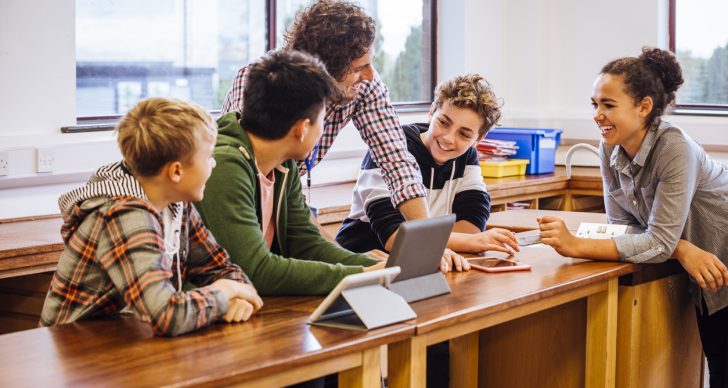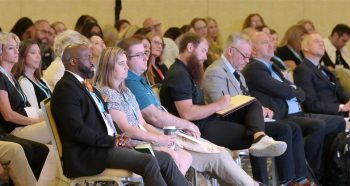I’ve been thinking a lot lately about collaboration. I’ve recently had the opportunity to deliver training in other countries, and have been struck by the different ways that effective collaboration can manifest. A team activity in a training course I delivered recently appeared to disintegrate into chaos, with everyone talking over each other, gesticulating wildly and shouting, and yet the outcome of their work showed they had worked together extremely effectively.
In another country, a similar activity was approached very quietly, with the oldest or most senior member of the group speaking first, and then validating or challenging the more tentative contributions of others. This also produced a good end product, though it took slightly longer. I’ve also observed groups who immediately chunk up the team activity into blocks, assigning each person a section, and then barely speaking to each other for the rest of the task. This can be an efficient way of working but is representative of co-operation rather than true collaboration, where the whole group works together.
Increasingly, employers and higher education providers are interested in transversal skills such as an individual’s ability to solve problems, think creatively, and collaborate effectively. The Cambridge Learner Attributes clearly support this mentality, looking to develop learners who are confident working with new ideas, respectful of others, and who are creative, innovative and engaged thinkers. These permeate the curriculums, syllabuses, and assessments that Cambridge International offers. It can be seen even more explicitly through the Cambridge Global Perspectives programme, a skills-based programme of learning for 5 to 19-year-olds specifically targeting attributes such as critical thinking and collaboration.
However, assessing collaboration has its challenges. Ideally, we would assess collaboration in an authentic context, with groups of learners working together towards a shared goal, but this can be difficult logistically for teachers to manage: real-time observations of groups can be challenging, and while technology can help to capture these interactions, it is still time-consuming to assess.
Attempts have been made to use digital technology to harness collaborative assessment, most notably the OECD PISA collaborative problem-solving test in 2015, which used computer agents as collaborative partners for individual candidates. However, the limited interactions (a defined list of pre-populated ‘responses’ were available to students in a messaging environment) feel somehow artificial. A fuller analysis of this assessment can be seen in the latest issue of Cambridge Assessment’s publication, Research Matters.
There have been more authentic attempts, using combinations of direct observations, recordings, working notes and drafts, final outcomes, peer-assessments and reflective statements by learners to evidence to collaborative process, but there are still fundamental tensions. Should everyone in the group get the same mark, and if so, how will this affect motivation? As Shaw and Child note, “when marks are given to individuals, there is the potential for collaboration to become competition, and for individuals to feel aggrieved if their contributions are not noted. However, when marks are given at the group-level, this potentially obscures individual contributions”. Group marks can also encourage so-called ‘free rider’ effect (Salomon and Globerson, 1989), where some members of the group sit back and let others do the work.
There is also an argument as to what extent the outcome of the task matters. If, for example, groups are given a puzzle to solve, does it matter whether they solve it correctly as long as they collaborate effectively? Can collaboration be judged to be truly effective if the desired group goal isn’t achieved? And if learners know that their end goal will not form part of the assessment, will it affect their motivation? Perhaps a solution is to embed these tasks into the wider curriculum, where the outcome is rewarded for the subject knowledge it represents, and the process towards it is valued for the evidence of collaborative working it generates.
These issues are not easy ones to grapple with, but ones we must try to engage with. As a natural introvert, I am most comfortable working on my own on tasks, but I recognise that effective outcomes increasingly require me to collaborate with colleagues. Teaching learners the skills to do this is clearly important, and valuing these skills in our assessments will help to drive this.





